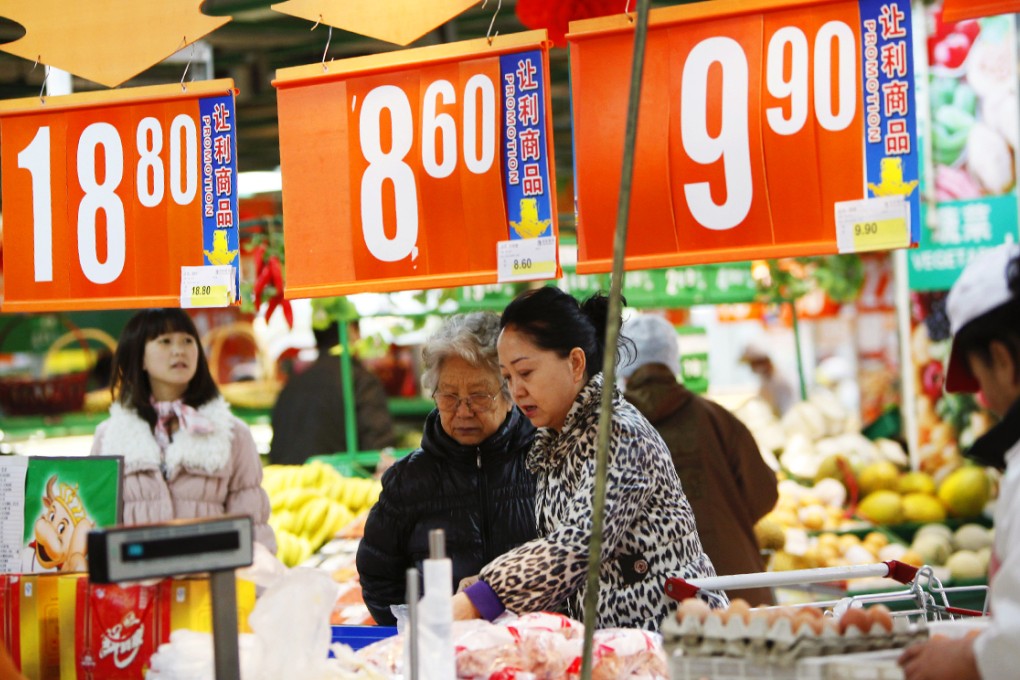China’s annual consumer inflation hits 5-year low in January
Stocks rise amid speculation slower growth will prompt liquidity injections

Consumer inflation on the mainland hit a five-year low last month, underscoring the economic slowdown and adding weight to calls for more monetary easing or stimulus to underpin growth in the world's second largest economy.
The headline consumer price index (CPI) climbed 0.8 per cent year-on-year in January, the lowest increase since November 2009, the National Bureau of Statistics said yesterday.
Food price rises easing to 1.1 per cent in January from 2.9 per cent in December were the main reason for this, the bureau said.
The mainland's two stock exchanges rose by more than 1 per cent yesterday, led by financial firms, on speculation that lower inflation might trigger fresh liquidity injections. The People's Bank of China cut the reserve requirement ratio (RRR) for banks last Thursday for the first time since May 2012.
HSBC Global Research economists said that besides falling energy prices and benign food inflation, core inflation also eased to a multi-year low, suggesting weak domestic demand.
Economists with Nomura Securities Asia said the subdued CPI figures were distorted by the Lunar New Year holiday, which falls in February this year but was in January last year.